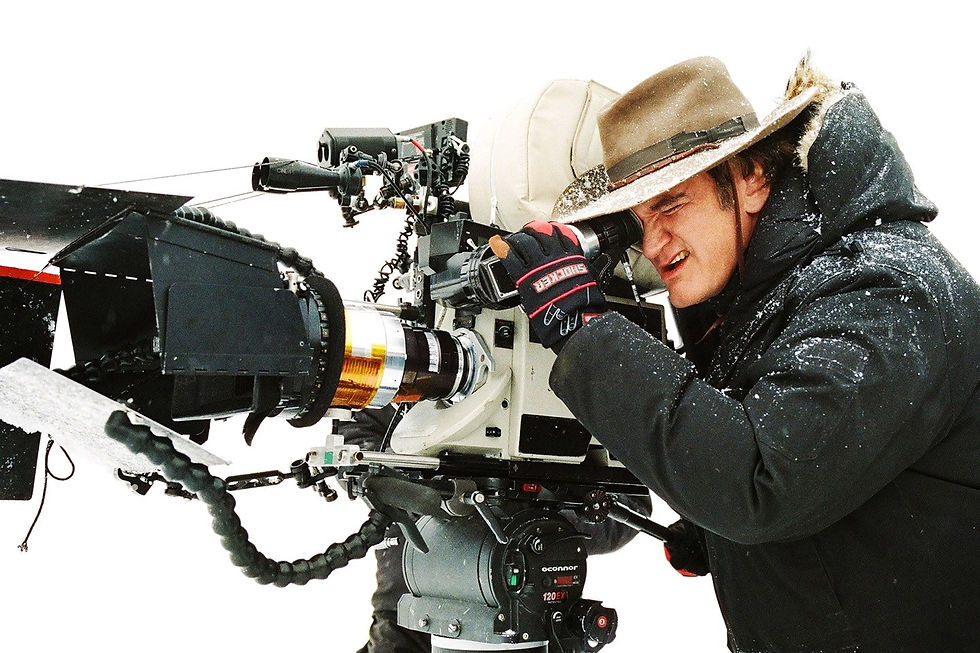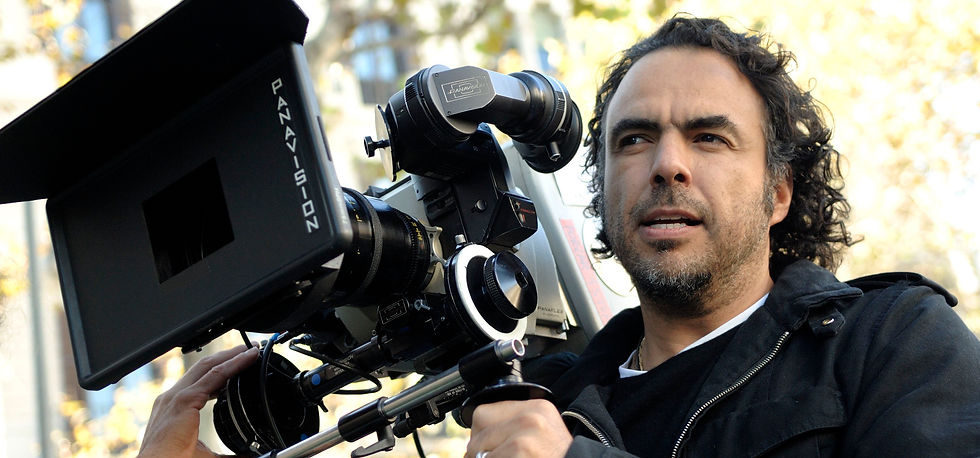In the Spotlight: The Director
- sveahartle
- Nov 12, 2017
- 3 min read
Every cineast has it: Their favourite director. Be it Kubrick, Tarantino, Hitchcock or anyone else. My all-time favourites happen to be Alejándro Gonzáles Iñárritu, Stanley Kubrick and Christopher Nolan, amongst others.

Since I wanted to become a director since high-school but still keeping an eye for the other jobs in the film industry, I decided to look deeper into the different job roles to be able to make an informed decision about my future career path.
So what is the director actually? Asking Creative Skillset, it will give you a neat overview of the characteristics and skills one will most likely need to be suitable for becoming a director. And while most are fairly obvious to begin with, I will just shortly state them for the sake of entirety.
So a director:
- defines the style and the structure of the film,
- selects cast, crew and also the locations,
- takes care of rehearsals,
- reforms the script to meet his filmic vision
- composes and selects the shots
- and edits as well (Director's Cut!)
Surprising to me was the fact that the director also composes and selects the shots of his film. To my understanding so far, this would also be a major and crucial task of the cinematographer.

But the director also combines the different units on set and ties in production, creative and technical crew to work on a unified vision.
Artistic vision and creative skills, as well as commitment and passion for filmmaking are ranked amongst the first criteria. As is being a strong, decisive and confident leader who is able to collaborate with cast and crew and delegate tasks. Which also means that you will need well-developed soft skills.
But being a director is naturally a highly competitive area of work where you will have to constantly fight for your vision in contrast to the producer's budget. This means that you not only need a thick skin, but also a clear and unwatered vision of your idea. As Creative Skill set rightly points out, this also means that you need to have strong cognitive abilities to ignore fatigue, work against frustration and pressure and stay alert for long hours on end.
But which initially inspired me the most about the job as a director was the fact that they would need a holistic understanding of filmmaking in order to produce a valuable piece of art and be completely topical not only about technical developments, but also about cinematographic innovations to get the most out of. The versatility and variety of skills a director needs is just utterly fascinating.
Looking back at this intense catalog of criteria, I am somewhat still confident that becoming a director would be a vital and fulfilling challenge for me.

On the downside, the fact that a director also needs to be able to motivate a team is one of the abilities I still need to acquire. While I am able to stay motivated for hours and weeks on end without feeling frustration and exhaustion, I have not yet been able to transfer this to my crew as well. In my productions so far, I usually ended up being the most motivated person on set while others were already tired and highly demotivated.
While it is famously rumoured that Hitchcock motivated his cast and crew by reminding them about their paychecks, I certainly don't want to be the director who has to take what I believe to be the last straw. Also, I do not want to direct like Ingmar Bergman did. Although it always makes for a great myth of brilliance, I do certainly not believe in bullying your actors
Also, I have yet to find an effective way to tell my cast and crew if I am not yet satisfied with a take or an act without demotivating them. I realise that in my previous film shoots, I have always too hesitant in asking for a retake, in the fear of hurting the crew and cast that has put in so much energy and passion, just to find out that they just missed the mark. And I feel that this insecurity also feeds back into the cast and crew who will eventually be at a loss at what to do or portray.
Which is why, for my Me, Myself, and I, I want to attempt to balance and stress the good aspects of a take with its downsides to give the others a better understanding of what I am trying to achieve.
References:
http://creativeskillset.org/job_roles/758_director








Comments